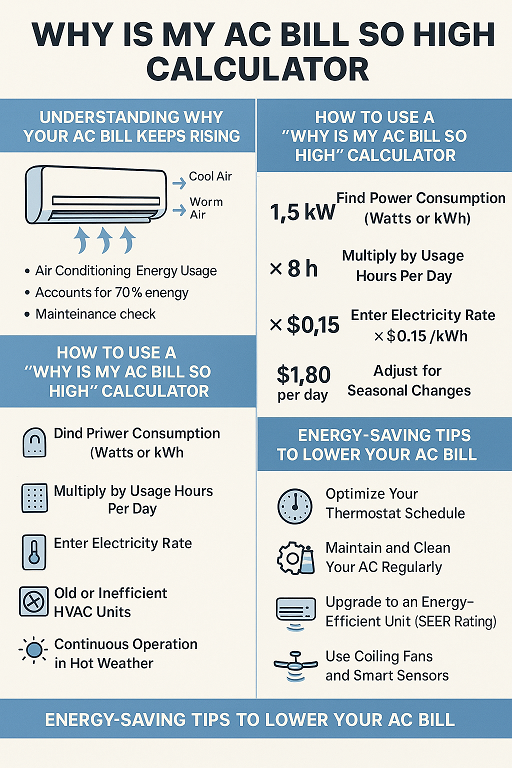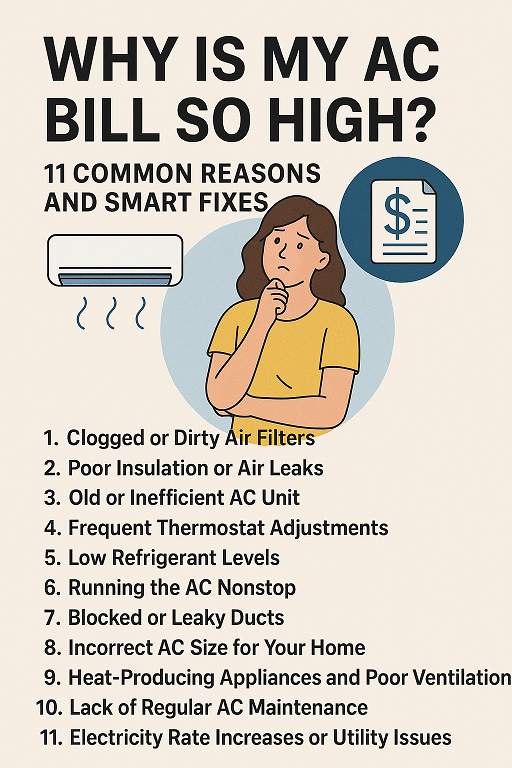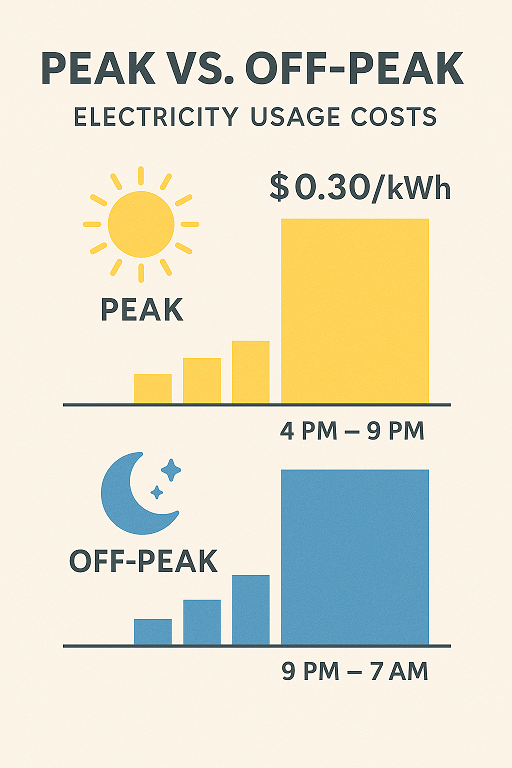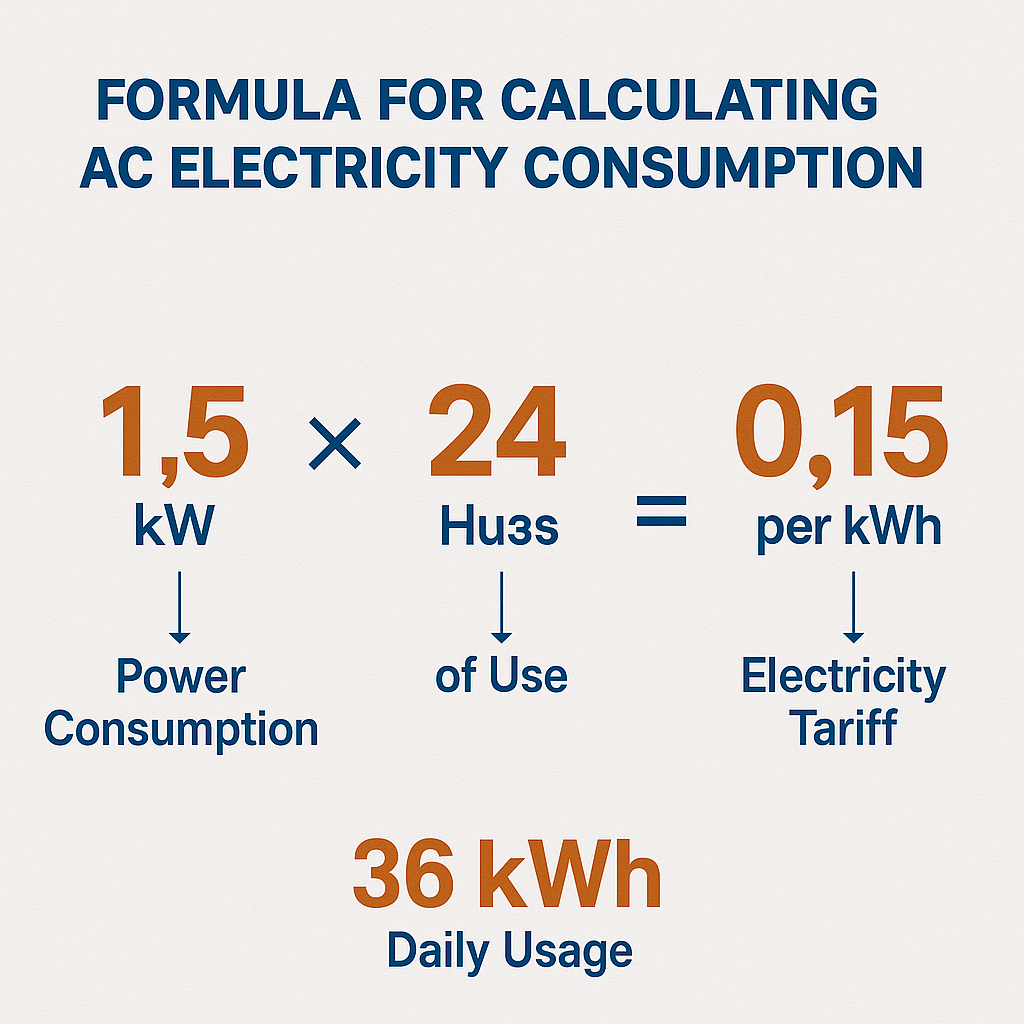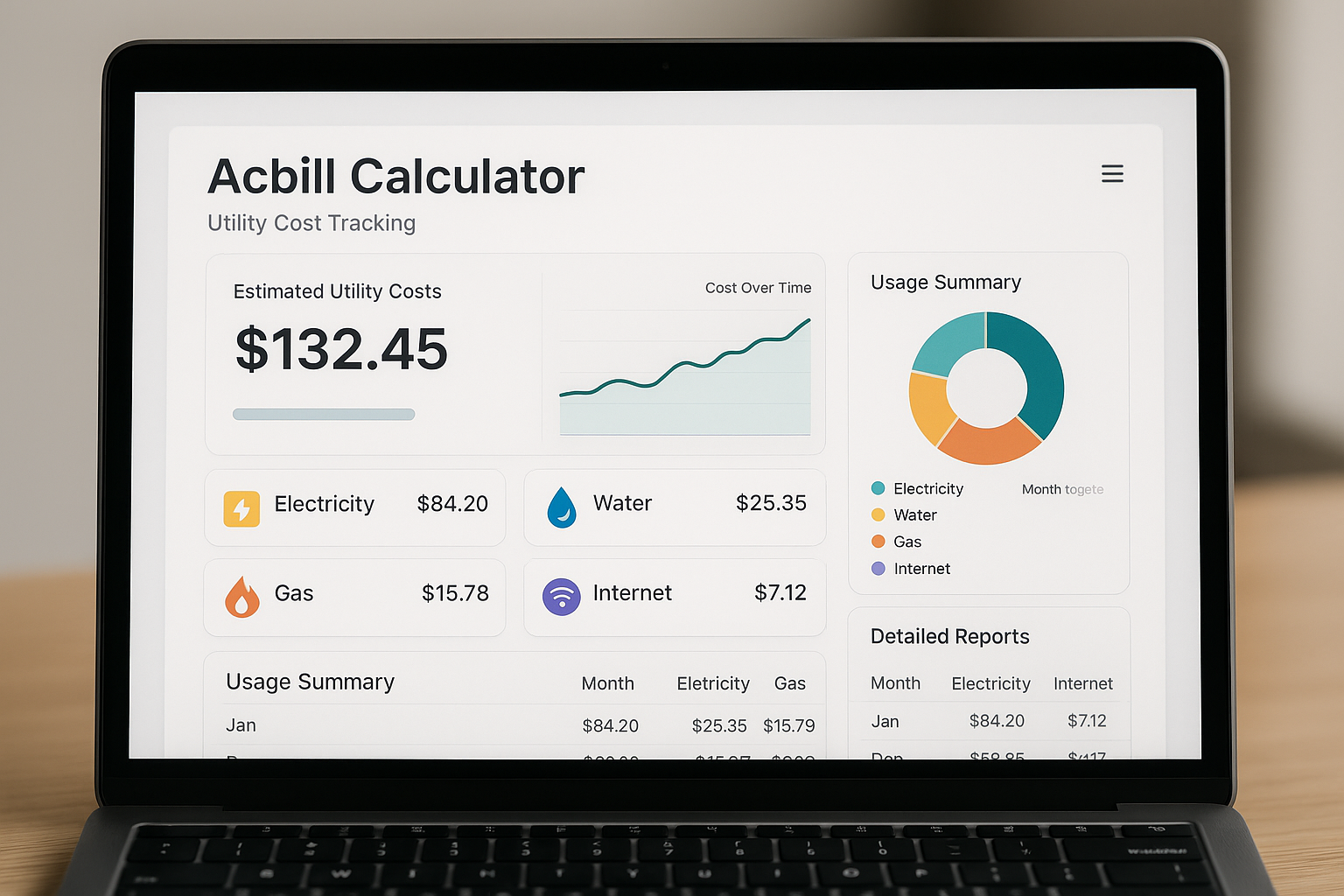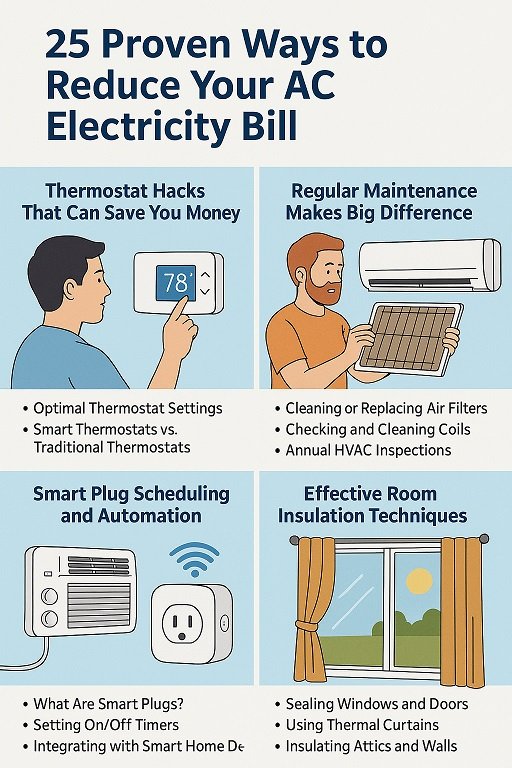
25 Proven Ways to Reduce Your AC Electricity Bill
Understanding the Basics of AC Energy Consumption
How Air Conditioners Use Power
How an air conditioner works is by pulling warm air from your room, cooling it with refrigerant, and then bringing it back into the room. This is an energy-consuming process, and even more so in older or inefficient units. The running nature of your AC leads to energy consumption, which is why it's important to take a close look at how your usage habits and the type of unit you have can affect the amount you pay each month.
Key Factors That Influence Your AC Bill
A number of facts contribute to how much energy your ACuses:
- AC size, capacity
- Outdoor temperature
- Quality of home insulation
- Thermostat settings
- Maintenance frequency
The knowledge of these can guide you to act in order to maximize efficiency and reduce the cost.
Thermostat Hacks That Can Save You Money
Optimal Thermostat Settings
When at home adjust your thermostat to 78 degrees Fahrenheit (25 degrees Celsius) and increase it by 7-10 degrees whenever out. An increment of each degree can save around 3 to 5 percent of cooling costs.
Smart Thermostats vs. Traditional Thermostats
Smart thermostats also learn and manage to adjust automatically. Others can even measure your energy consumption and make recommendations. Smart thermostats like Nest or Ecobee have the potential to save you up to 15 percent on your AC bill annually.
Using Temperature Scheduling Efficiently
Create a schedule that suits the times when people are home, sleeping, or out. This is one of the easiest and most effective ways to reduce the cost of running your AC, as most programmable thermostats operate on a daily or weekly setting routine.
Regular Maintenance Makes a Big Difference
Cleaning or Replacing Air Filters
Contaminated filters cause hindrance to the flow of air and hence your AC has to strain. Change or wash filters every 1 3 months.
Checking and Cleaning Coils
There is the accumulation of dirt in the condenser and the evaporator coils. This is made easier when they are cleaned once per year.
Annual HVAC Inspections
Contact a professional tune-up every spring. Refrigerant levels are checked, coils are cleaned and components are adjusted to run well by technicians.
Smart Plug Scheduling and Automation
What Are Smart Plugs?
Smart plugs can give you the freedom to go ahead and schedule when you want your AC to switch on/off using phone app or even voice command. They are ideal window or portable.
Setting On/Off Timers
Set timers to ensure that you do not use your AC throughout the day but rather when you are near home or maybe during off-peak hours.
Integrating with Smart Home Devices
Combine smart plugs with Alexa, Google Home, or IFTTT for programmed energy savings by calendar, weather patterns or your routine.
Effective Room Insulation Techniques
Sealing Windows and Doors
Leaks around windows and doors lose cool air. Seal leaks and keep the cold air out with weatherstripping and caulk.
Using Thermal Curtains
Having these curtains prevents an excessive amount of sunlight and heat allowing your AC to work less. Perfect with east here, and west facing windows.
Insulating Attics and Walls
Correctly insulated prevents the cold air to escape and insensibly lets in hot air thus reducing the general cooling requirements.
Efficient Usage Habits to Lower AC Costs
Running AC at Night Strategically
It is cooler at night so a good time to run AC with the windows open or in the eco mode.
Cooling Only Occupied Rooms
Close doors to the unused rooms and closed vents. This helps to channel air to the most required places.
Using Ceiling Fans to Support Cooling
Fans can move the air so that you can increase your thermostat by 4degrees without missing comfort.
Appliance and Lighting Optimization
Reduce Heat-Producing Appliances During Day
If possible, refrain from using ovens, dryers, or stovetops when it is really hot. Use microwaves or outdoor grill to heat.
Switch to LED Lighting
They spread out heat. LEDs are cooler and more power effective.
Strategic AC Placement and Room Layout
Keep Vents Unblocked
Furniture and rugs can be in front of vents. Make sure there is good airflow for maximum cooling.
Avoid Placing AC Near Heat Sources
Never put AC units by lamps, electronics, etc. Heat in vicinity deceptively tricks the thermostat.
Use Energy-Efficient AC Units
What is an ENERGY STAR AC?
Such units are high efficiency units as defined by the EPA. They are 10-15 percent more effective as compared to the standard ones.
Benefits of Inverter ACs
Inverter technology controls the speed of compressors to provide continuous cooling and saves a lot of energy.
Zoning and Multi-Room AC Solutions
What is Zoning in HVAC?
Zoning creates partitions of your house with regards to temperature. Each area can be managed separately so as to avoid cooling unutilized areas.
How Zoning Saves You Money
Zoning allows you to reduce energy wastage by up to 30% as you have to focus on the rooms you make use of.
Natural Cooling Tricks and Alternatives
Cross Ventilation and Night Air
Leave windows on opposite sides open at night to allow for cross breeze cool air flowing into your house.
Shading and Landscaping Ideas
Put trees by windows, or awnings to avert the direct sunlight.
Optimize Your Home Layout for Airflow
Open Floor Plans vs. Closed Spaces
Open designs permit improved air circulation and thus cooling is easier. In enclosures use fans to circulate the air.
Ventilation Enhancements
Place exhaust fans in kitchens and bathrooms and get rid of heat and humidity.
Leveraging Utility Company Programs
Time-of-Use Billing Awareness
Many providers have lower rates during off-peak throughout the day. Operating your air conditioners at these times can cut costs.
Rebates for Smart Devices or Efficient ACs
প্রোগ্রামেবল থার্মোস্ট্যাট বা ENERGY STAR যন্ত্রপাতির উপর ছাড়ের জন্য আপনার ইউটিলিটি কোম্পানির সাথে যোগাযোগ করুন।
Seasonal Adjustments and Settings
Spring and Fall Thermostat Settings
Use the sunny days to advantage temperature with AC off or the fans on.
Pre-Cooling Strategy
Cool your house ahead of peak afternoons heat after that keep the temperature stable using least effort.
Monitor and Track Your Energy Usage
Use of Energy Monitors
Things such as Sense or Emporia tell you in real time where the energy is going and allow you to find your energy munchers.
Monthly Consumption Review
Monitor the same energy use month by month to trace the results of your savings plans.
Bonus Tips for Renters
Portable AC Tips
Insulated window panels and seal gaps should be used to enhance efficiency of portable AC.
Negotiating Efficiency Upgrades with Landlords
Request weather stripping, change of filters, or smart plugs of landlords.
Frequently Asked Questions (FAQs)
1. So what temperature should I set my AC to in order to lower the bill?
When at home, 78 o F is fine and when away, 85 o F. Saving 3-5 percent is available on each degree level.
2. Does the use of ceiling fans cut on diminishing A/C?
Yes. They blow colder air and you are allowed to increase the thermostat without getting un-comfy.
3. How frequently do you suggest it to clean the AC filters?
We should do it at least once in 1-3 months, and more frequently, when there are pets or allergies.
4. Do smart thermostats actually save money?
Definitely. Smart thermostat is pre-programmed to suit your routines and can cut cooling expenses by as much as 15 percent.
5. Should the AC be left on during the day or switch it off when nobody is around?
Switch it off or have smart schedule. It uses up energy to run it the whole day.
6. Whats the best way to cut my Ac bill during a heatwave?
The blackout curtains, heat-producing equipment and pre-cooling at a convenient time in the morning can help.
Conclusion: Your Roadmap to an Affordable Summer
You don't have to sacrifice a comfortable lifestyle by lowering your AC's electricity bill. With a combination of smart devices, maintenance, habits, and small upgrades, you can have a cooler home and lower your electricity bill too. Implement these time-tested strategies to help your cooling bill work less and be smarter than ever.
